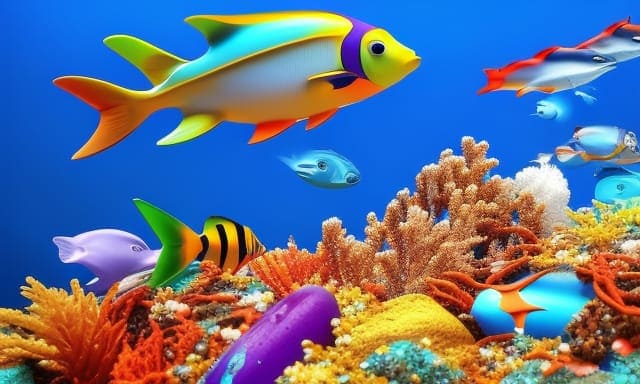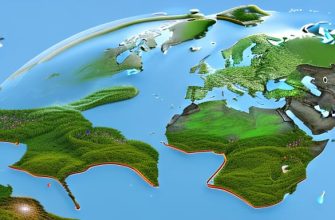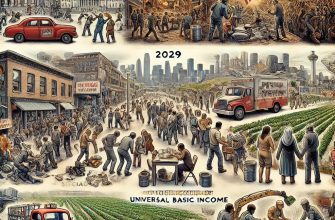Are you tired of hearing about our oceans turning into plastic soup? Good news! World leaders have finally reached a global consensus on a legally binding treaty to reduce plastic waste in oceans and prevent marine pollution. This agreement can potentially be a game-changer in the fight against plastic pollution.
But why did it take so long? Environmental activists and experts have warned us about plastic pollution’s disastrous consequences for years. It took time to raise enough awareness and support to push for a global treaty.
What does this treaty entail? In this article, we’ll dive deep into the issue’s history, the treaty’s key provisions, and the challenges and benefits of implementing it. Get ready for a deep-sea adventure that could save our oceans!
The Global Problem of Ocean Plastic Waste
A Brief History of Plastic Pollution
It all started with the mass production of plastic in the mid-20th century. As plastic products became more popular, so did the waste generated from them. The world’s oceans became the primary dumping ground for this waste, and by the early 21st century, a plastic crisis was in full swing.
By 2021, researchers estimated that 8 million metric tons of plastic entered the oceans yearly. This pollution devastated marine life, ecosystems, and human health. It was clear that urgent action was needed.
The Impact on Marine Life and Ecosystems
Plastic waste in the ocean has a catastrophic impact on marine life. Over 100,000 marine animals die yearly from ingesting or getting entangled in plastic. Microplastics can also accumulate in the food chain, affecting the entire marine ecosystem.
But the damage doesn’t stop there. Plastic waste also destroys habitats like coral reefs and can leach harmful chemicals into the water. As a result, entire ecosystems are put at risk, and the future of our oceans hangs in the balance.
The Journey Towards a Legally Binding Treaty
The Early Efforts
Efforts to combat plastic pollution began with local and regional policies, like plastic bag bans and recycling initiatives. However, it quickly became apparent that a more comprehensive, global approach was necessary.
International organizations and conventions, such as the United Nations Environment Programme and the Basel Convention, started addressing the issue. But despite their best efforts, a legally binding treaty remained elusive.
The Turning Point
In 2021, the global community finally began to take serious steps toward a legally binding treaty. Several high-profile conferences and campaigns raised awareness about the need for a comprehensive solution to ocean plastic waste. As support grew, so did the momentum toward a treaty.
After years of negotiation, world leaders finally agreed on a legally binding treaty to reduce ocean plastic waste and prevent marine pollution.
Key Provisions of the Treaty
Reducing Plastic Production and Consumption
The treaty focuses on tackling plastic pollution at its source. Signatory countries must commit to reducing their plastic production and consumption through measures like taxes, bans, and incentives for alternatives.
Improving Waste Management and Recycling
The treaty also emphasizes the importance of proper waste management and recycling. Countries must develop and implement comprehensive waste management systems, invest in recycling infrastructure, and promote circular economy principles.
Monitoring and Reporting Progress
Transparency and accountability are key to the treaty’s success. Countries must regularly report on their progress in reducing plastic waste and improving waste management. Additionally, a global monitoring system will track the amount of plastic entering the oceans, helping to measure the treaty’s effectiveness.
Supporting Developing Countries
Recognizing that developing countries often struggle with waste management, the treaty includes financial and technical assistance provisions. Developed countries must provide support to help these nations implement the treaty and build the necessary infrastructure.
The Challenges and Benefits of Implementing the Treaty
Overcoming Obstacles
Implementing the treaty won’t be without challenges. Some countries may resist due to economic concerns or a lack of infrastructure. Others may face difficulties enforcing regulations or struggle to find viable alternatives to plastics.
Despite these hurdles, the global community must unite to ensure the treaty’s success, as the stakes are too high to ignore.
Reaping the Rewards
The benefits of successfully implementing the treaty are immense. A cleaner ocean means healthier ecosystems, more stable fisheries, and a reduced risk of plastic-related health issues for humans.
Additionally, transitioning to a more sustainable, circular economy will create new jobs and opportunities, fostering innovation and economic growth.
Frequently Asked Questions
- What is the main goal of the treaty? The primary goal is to reduce plastic waste in oceans and prevent marine pollution by reducing plastic production, improving waste management, and supporting developing countries.
- How will the treaty be enforced? Each signatory country is responsible for implementing the treaty’s provisions and reporting on its progress. A global monitoring system will track ocean plastic pollution to measure the treaty’s effectiveness.
- What can I do to help reduce plastic pollution? You can make a difference by reducing your plastic consumption, properly recycling, supporting policies that reduce plastic waste, and spreading awareness.
Conclusion
The global consensus on a legally binding treaty to reduce plastic waste in oceans and prevent marine pollution is a major milestone in the fight against plastic pollution. It’s up to all of us – governments, businesses, and individuals – to work together and ensure the treaty’s success for our oceans and future generations.
Together, we can turn the tide on plastic pollution and reclaim our beautiful blue planet!








